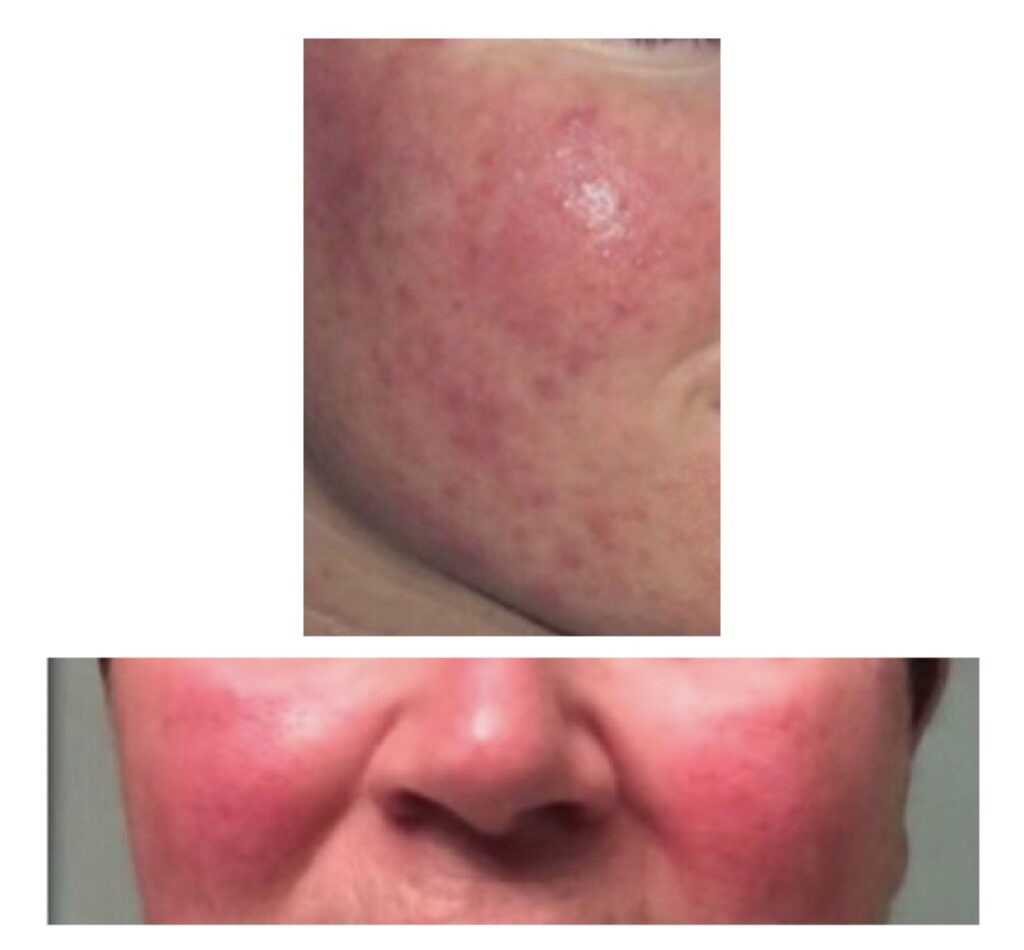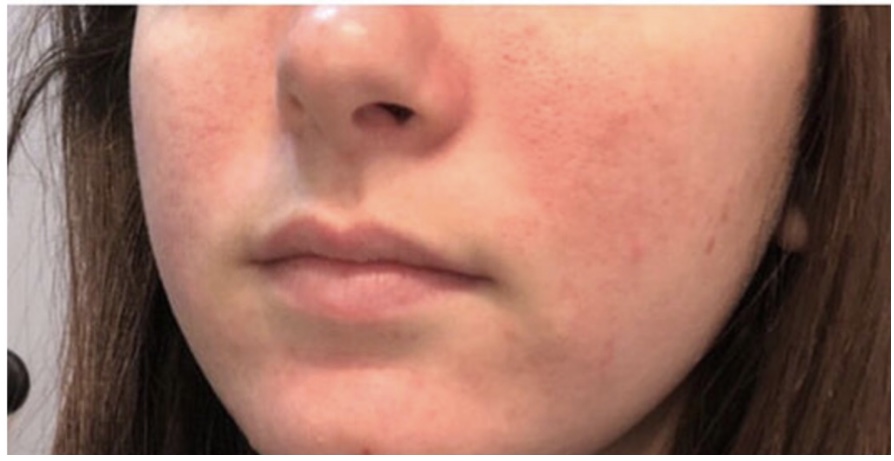What is inflamed skin?
Skin inflammation refers to the body’s natural response to injury, infection, or irritation on the skin’s surface. When the skin is exposed to harmful stimuli, such as bacteria, viruses, allergens, or environmental factors, the immune system activates an inflammatory response to protect and repair the damaged area. This process often leads to visible signs of inflammation on the skin, such as redness, swelling, warmth, pain, and sometimes itching.
Common causes of skin inflammation include:
- Infections: Bacterial, viral, or fungal infections can trigger skin inflammation. For example, a bacterial infection like impetigo or a viral infection like chickenpox can lead to inflamed skin.
- Allergic Reactions: Allergens like certain foods, cosmetics, or environmental factors (such as pollen or pet dander) can cause skin reactions such as hives, rashes, or eczema.
- Irritants: Exposure to harsh chemicals, soaps, detergents, or other irritants can cause skin irritation and inflammation. For example, contact dermatitis occurs when the skin comes into direct contact with an irritating substance.
- Autoimmune Conditions: Certain autoimmune diseases, such as psoriasis or lupus, can cause chronic inflammation of the skin. In these cases, the immune system mistakenly attacks healthy skin cells.
- Injury: Physical damage to the skin, such as cuts, burns, or abrasions, can cause localized inflammation as part of the healing process.
Skin Imflammation
The inflammatory response in the skin involves an increase in blood flow to the affected area, which leads to redness and warmth. White blood cells are sent to the site to fight infection or repair damage, which can result in swelling and sometimes pain. Thi process is crucial for healing, prolonged or excessive inflammation can lead to skin damage or the development of chronic skin conditions.
Skin inflammation can be acute (short-term) or chronic (long-term), depending on the underlying cause. Proper treatment, such as using anti-inflammatory medications, moisturizing creams, or avoiding irritants, can help manage and reduce skin inflammation.
Signs of Inflammation
The symptoms of inflammation can differ from one person to another.
Inflammation symptoms in the body:
- muscle aches
- pains
- swelling
Inflammation symptoms in the skin:
- redness
- sensitivity
- skin temperature is warm or hot
- dry spots
- dehydrated skin
- Consistent skin Inflammation can exhibit a condition of rash-like like psoriasis and eczema.

Solutions for skin inflammation
Firstly, it’s always best to consult with a medical professional who can assess your skin condition and help you create the most effective treatment plan tailored to your specific needs. A doctor can guide you through understanding the root cause of your skin inflammation and provide advice on medications or therapies that may be necessary for more serious conditions.
For milder cases, however, there are various topical skincare products available that can help alleviate the discomfort and redness caused by inflammation. When selecting these products, it’s important to look for key soothing ingredients that have been known to calm irritated skin.
Calming Natural Remedies
One of the most trusted remedies for inflamed skin is aloe vera. Aloe has long been celebrated for its ability to calm and hydrate the skin, making it a popular choice for soothing irritation caused by conditions like eczema, psoriasis, or even mild burns. Aloe’s natural anti-inflammatory properties work to reduce swelling, redness, and discomfort, while also promoting healing and moisturizing the skin. Whether you’re dealing with the discomfort of eczema flare-ups, the challenges posed by psoriasis patches, or the sting of sunburns, aloe-based creams or gels are often the first line of defense in relieving these symptoms.
Beyond aloe, there are a variety of other ingredients that can support your skin’s healing process and reduce inflammation. Chamomile and lavender oils are known for their calming properties and can help soothe inflamed skin, providing relief from both the physical discomfort and the emotional frustration that often accompanies skin irritation.
Oatmeal is another ingredient commonly used to calm and nourish the skin, as it’s rich in anti-inflammatory compounds that can relieve itching and irritation.
In addition to these ingredients, niacinamide (vitamin B3) is often included in skincare formulations for its ability to strengthen the skin barrier, reduce redness, and protect the skin from further inflammation. Cucumber extract is another soothing ingredient that provides cooling relief and is commonly found in gels and creams formulated for irritated skin.
To further enhance the effects of these anti-inflammatory ingredients, many products are formulated with hyaluronic acid, which helps to lock in moisture and support the skin’s natural hydration process. This can be especially important for dry or cracked skin, which often accompanies inflammation.
Choosing Products
When choosing a product, be sure to select one that is free from harsh chemicals or fragrances that could potentially aggravate sensitive skin. Opting for creams, gels, or serums that are designed specifically for sensitive or inflamed skin can make a significant difference in your comfort level and the effectiveness of the treatment.
Skincare for Sensitive Skin
Whether you’re seeking relief from an occasional flare-up or managing a more persistent condition, these carefully crafted skincare solutions can help bring the balance and calm your skin needs. With the right combination of soothing ingredients, you can support your skin’s natural healing process, reduce inflammation, and feel more comfortable in your own skin.
Your skin deserves the utmost care, from head to toe. Sensitive skin is not only on the face. What you put on your body can also cause your skin to react too. Be mindful of the products you are using on your body as well. That’s why it’s crucial to be mindful of the products you choose. Choose gentle, all natural products. Soothing and calming for sensitive and damaged skin.










